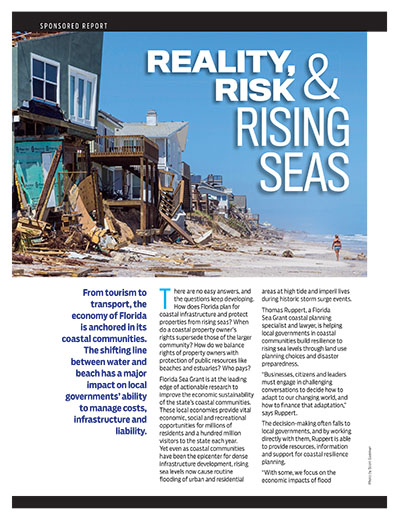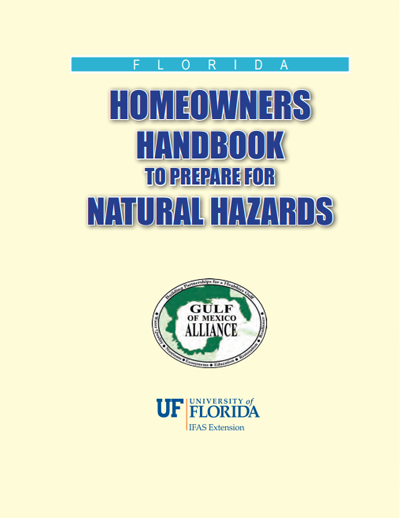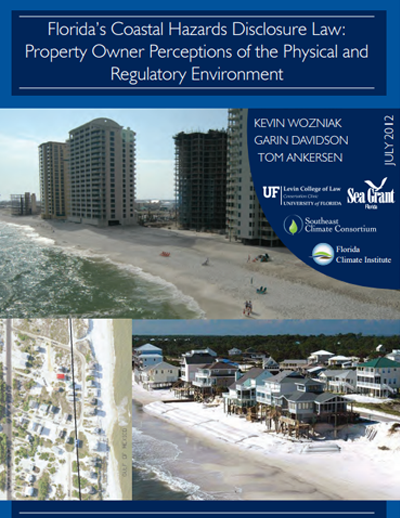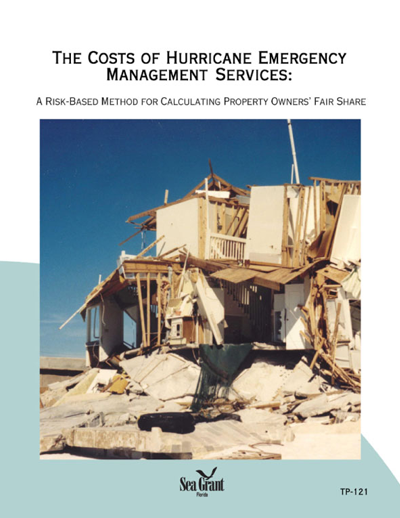From tourism to transport, the economy of Florida is anchored in its coastal communities. The shifting line between water and beach has a major impact on local government' ability to manage costs, infrastructure and liability.
Florida Trend Report: Reality, Risk and Rising Seas
November 2017
Florida Trend Report
This report in Florida Trend magazine discusses the shifting line between water and beach and how it has a major impact on local governments’ ability to manage costs, infrastructure and liability.
Oil Spill Science Publications
Oil Spill Science Publications
By Monica Wilson, Larissa Graham, Chris Hale, Emily Maung-Douglass, Stephen Sempier and LaDon Swann
Extension specialists with the Sea Grant oil spill science outreach program in the Gulf of Mexico produce a variety of publications and workshops sharing emerging oil spill science with decision makers and communities. Follow the links below to read the latest bulletins.
- Chemical Dispersants and Their Role in Oil Spill Science
- Persistence, Fate and Effectiveness of Dispersants Used During the Deepwater Horizon Oil Spill
- Responses of Aquatic Animals in the Gulf of Mexico to Oil and Dispersants
- Top 5 Frequently Asked Questions about the Deepwater Horizon Oil Spill
- Navigating Shifting Sands: Oil on Our Beaches
- Fisheries Landings and Disasters in the Gulf of Mexico
- The Deepwater Horizon Oil Spill’s Impact on Gulf Seafood
- Storms and Spills
- Helping Oiled Wildlife Recover
- Where Did the Oil Go?
- Creating Healthy Communities to Overcome Oil Spill Disasters
- Is It Safe? Examining Health Risks from the Deepwater Horizon Oil Spill
- A Boater’s Guide to Handling Oil and Fuel Spills
- Underwater Vehicles Used to Study Oil Spills
- Microbes and Oil: What’s the Connection?
- Corals and Oil Spills
- Predicting the Movement of Oil
- Sea Turtles and the Deepwater Horizon Oil Spill
- The Deepwater Horizon Oil Spill’s Impact on Bottlenose Dolphins
- Emerging Surfactants, Sorbents, and Ddditives for Use in Oil Spill Clean-Up
- The Deepwater Horizon’s Impact on People’s Health: Increases in Stress and Anxiety
- Skin Lesions in Fish: Was There a Connection to the Deepwater Horizon Oil Spill?
- Impacts from the Deepwater Horizon Oil Spill on Gulf of Mexico Fisheries
Florida Homeowners Handbook to Prepare for Natural Hazards
April 2013
Gulf of Mexico Alliance; Saari, Brooke; Carnahan, Libby
Natural hazards such as tornados, hurricanes, tropical storms, floods, or high wind events can threaten your home, both inhabitants and contents. This handbook was created to help Floridians prepare for a natural hazard so that risks to family and property may be reduced.
Florida’s Coastal Hazards Disclosure Law: Property Owner Perceptions of the Physical and Regulatory Environment
TP-194, Full Report
TP-195, Executive Summary
July 2012
Wozniak, K.; G. Davidson; and T. Ankersen
These documents recommend changes to Florida’s Coastal Hazards Disclosure Law, based on results of a research survey of buyers who had recently purchased property falling within the state’s specially designated Coastal Construction Control Line.
The Costs of Hurricane Emergency Management Services: A Risk-Based Method for Calculating Property Owners’ Fair Share
TP-121
June 2003
Deyle, R.; R. Smith; M. Boswell; E. Baker; M. Falconer; J. MacDonald
Planning scholars have argued that property owners who develop land in hazardous areas, and thereby impose costs on their communities for emergency planning and disaster recovery, should pay their fair share of those costs. This document describes a method of allocating such costs for hurricanes based on relative risk and applies it to Lee County, Fla.
Panic Preventer File: Generic Model for Marinas
SGEB-45
4th Edition 2007
Jackson, D.
Marina managers must have a contingency plan in-hand before minor or major disasters occur. The “Generic Panic File” is a model that can be adapted to your need. You must make a commitment to prepare for emergency and “hurry-up” situations by following the four-step process outlined. Purchase Manual





